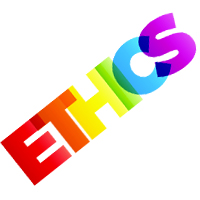 Ethics for Lactation Professionals Online Course(s) & Continuing Education
Ethics for Lactation Professionals Online Course(s) & Continuing Education
Access the latest clinical skills and research for Ethics for Lactation Professionals for Lactation & Breastfeeding professional training. These Ethics for Lactation Professionals online courses provide practice-changing skills and valuable perspectives from leading global experts. This Ethics for Lactation Professionals education has been accredited for a variety of CEUs / CERPs and can be accessed on-demand, at your own pace.


Liz Brooks is a private practice International Board Certified Lactation Consultant (IBCLC) and licensed lawyer, with expertise in criminal, administrative, non-profit, ethics, and lactation-related law. Liz offers in-home lactation consultations, and bedside care and teaching in two Baby-Friendly-designated hospitals.
She has been a leader in organizations for IBCLCs, breastfeeding promotion, and non-profit human milk banking. She authored the only textbook on legal and ethical issues for the IBCLC, and writes on health care ethics, equity, and conflict-of-interest in several books, blogs, and peer-reviewed journals.
She is a popular international conference speaker, offering practical tips with wit and wisdom for anyone who works with lactating and human milk-using families. Liz self-identifies as a cisgender hetero white woman with unearned privilege, and uses she/her/hers pronouns.
Topic: Using a Cool Head When You’re on the Hot Seat: Ethical and Legal Topics That Make Us Sweat, and How to Avoid Getting Burned - [View Abstract]
Topic: What’s Too “Friendly” for an IBCLC on Social Media? - [View Abstract]
Topic: Whiners and Deniers: Ethics and Diplomacy in Difficult Cases - [View Abstract]
It's all about the Internet! Families in 2015 want to be connected to their network of families and friends. They use Internet-accessing devices and social media to share news, gather information and seek opinions. If this is where families are ... can an IBCLC (or other healthcare provider) be there, too, without violating long-standing principles of privacy and professional ethics? Can healthcare providers engage in clinical discussion with someone on Facebook, Twitter, a chat room or a website? What about real-time webinars, or static websites, where mothers type in their clinical questions? Is texting ever permissible? Can a clinician post a picture of a client, or ask colleagues on a private listserv about a tricky case? We'll learn how the Internet is used by new families to seek and share information, and the professional risks of "friendly" clinical care by the IBCLC or HCP who joins the conversation.

You Don’t Have To: The Duty Mistake, The Justification Trap and Perceived Pressure to Breastfeed

Fiona Woollard is an Associate Professor of Philosophy at the University of Southampton. She works in the Philosophy of Pregnancy, Birth and Early Motherhood, with a special interest in infant feeding. She argues that identifying philosophical mistakes in the way we think about maternal behaviour can help improve conversations about infant feeding decisions. Her work has been widely published in journals aimed at philosophers, medical professionals and peer supporters, and in venues aimed at a general audience. To read more about her work on infant feeding, see https://fionawoollard.weebly.com/infant-feeding.html
Anecdotal evidence of the perception of pressure surrounding infant feeding decisions is easy to acquire simply by talking to new mothers. Several sociological studies report an association between decisions to formula feed and feelings of guilt, blame and failure. I connect perceived pressure regarding infant feeding decisions to a mistaken assumption that if breastfeeding benefits the child, the mother must have a defeasible duty to breastfeed. I call this the Duty Mistake. I show how the Duty Mistake contributes to guilt and shame surrounding the use of formula. It also produces what I call “the Justification Trap”: in a moralized context, requests for information or offers of support are perceived as calls for justification. This makes it much harder to ensure that women are given the support and information they need to meet their feeding goals. This presentation provides an overview of the issues and looks at how they impact the ethical responsibility of lactation professionals to promote and support breastfeeding.










